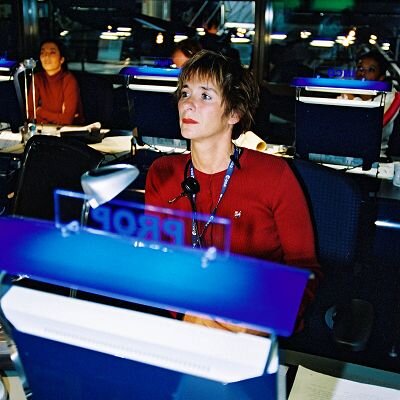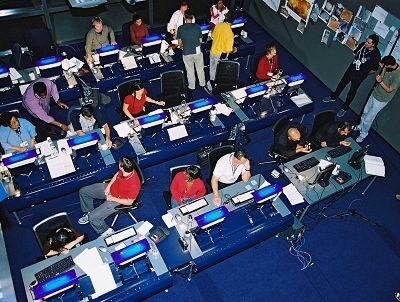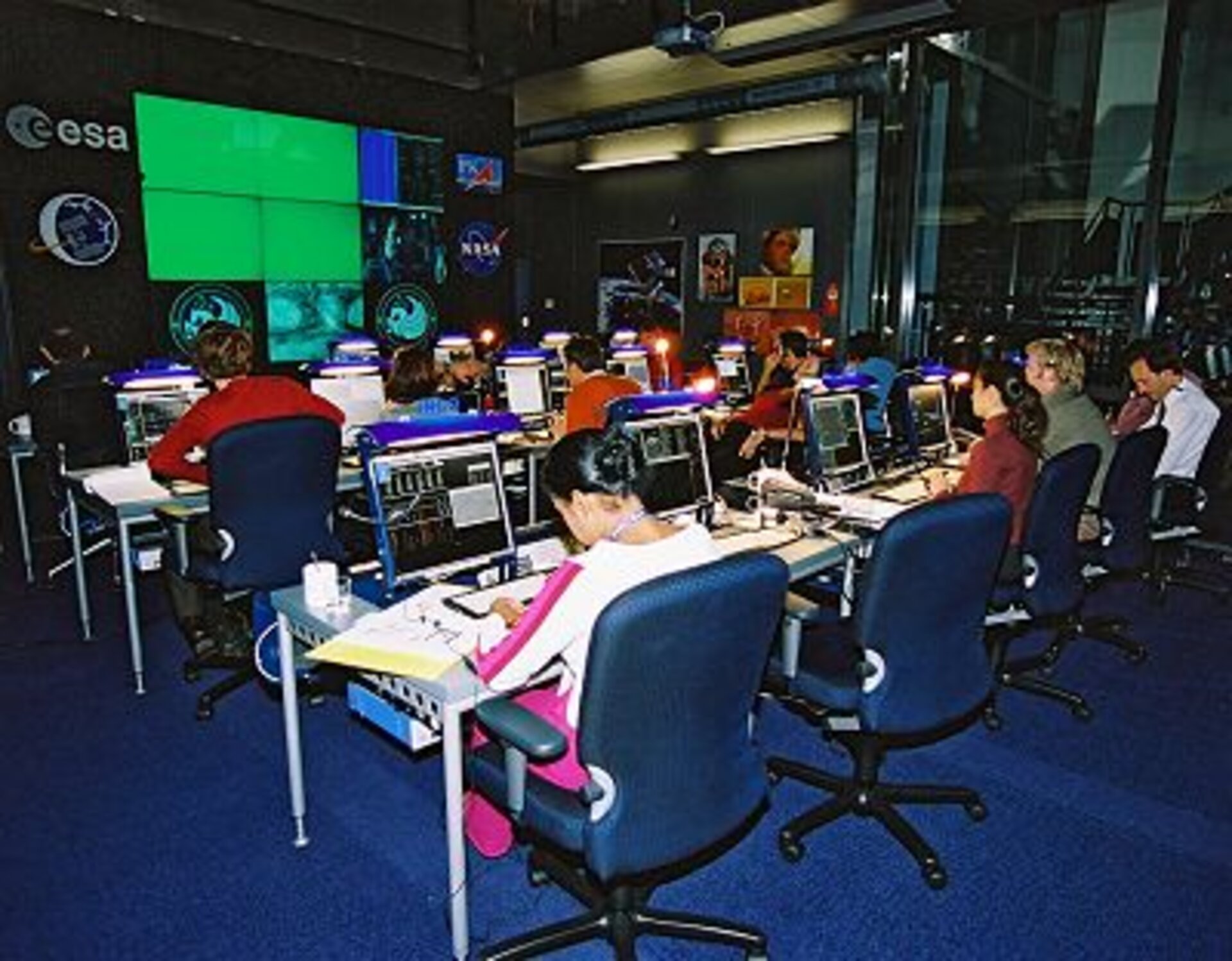BBC's Space Odyssey
Shortly after ESA astronaut Pedro Duque returned from the Cervantes Mission to the International Space Station, ESA's Mission Control Centre in the Erasmus User Centre at ESTEC, Noordwijk, was cleared to make way for a TV production team. For eleven days in November 2003, the User Centre became the setting for the new BBC drama-documentary 'Space Odyssey: Voyage to the Planets', to be broadcast on BBC TV this week.
Described by the BBC as 'the ultimate journey of human exploration', the two-part programme takes five astronauts on a six-year mission to explore the Solar System. From their interplanetary spacecraft 'Pegasus', the astronauts explore the planets Venus, Mars, Jupiter, Saturn and Pluto. In a trip filled with peril and excitement, the series uncovers the immense physical and emotional challenges that would affect those taking such a trip.

Production company Impossible Pictures took a great deal of care to ensure the accuracy of what they were portraying. They followed advice from planetary scientists and spacecraft engineers, and worked closely with experienced cosmonauts and astronauts including ex-ESA astronaut Jean-Pierre Haigneré and ESA astronaut Reinhold Ewald who both spent time on board the Russian Mir space station.
Originally visiting ESA's Erasmus User Centre in Noordwijk, the Netherlands, with the intention of obtaining ideas to recreate a realistic control centre elsewhere, the producers were taken in by the Control Centre's futuristic look, deciding it would provide the perfect setting for their own Mission Control.

The production also includes footage, provided by ESA and NASA, shot on board and outside ISS. ESA and the Russian Space Agency also provided real products that were developed for the International Space Station, such as personal hygiene packs and food parcels.
Immediately following the repeat of Part 1 of 'Space Odyssey', on Sunday 14 November, viewers in the United Kingdom will be able to watch a special live programme on BBCi – the BBC's digital interactive service. In a live broadcast from within Mission Control at the Erasmus User Centre, a team of experts, including ESA's Director of Science David Southwood, and ESA astronaut André Kuipers, will answer viewers' questions about space exploration.
Visit the BBC website to find out how to submit a question »»
Part 1 of Space Odyssey: Voyage to the Planets will be broadcast on Tuesday 9 November at 21:00 – 22:00 GMT (22:00 – 23:00 CET) on BBC 1 - the programme will be repeated on Sunday 14 November at 16:15 CET (15:15 GMT) on BBC2
Part 2 will be broadcast on Tuesday 16 November from 21:00 – 22:00 GMT (22:00 – 23:00 CET) on BBC 1 - repeated on 21 November at 18:15 CET (17:15 GMT) on BBC 1.
The series will also air on other European television channels in the near future.




